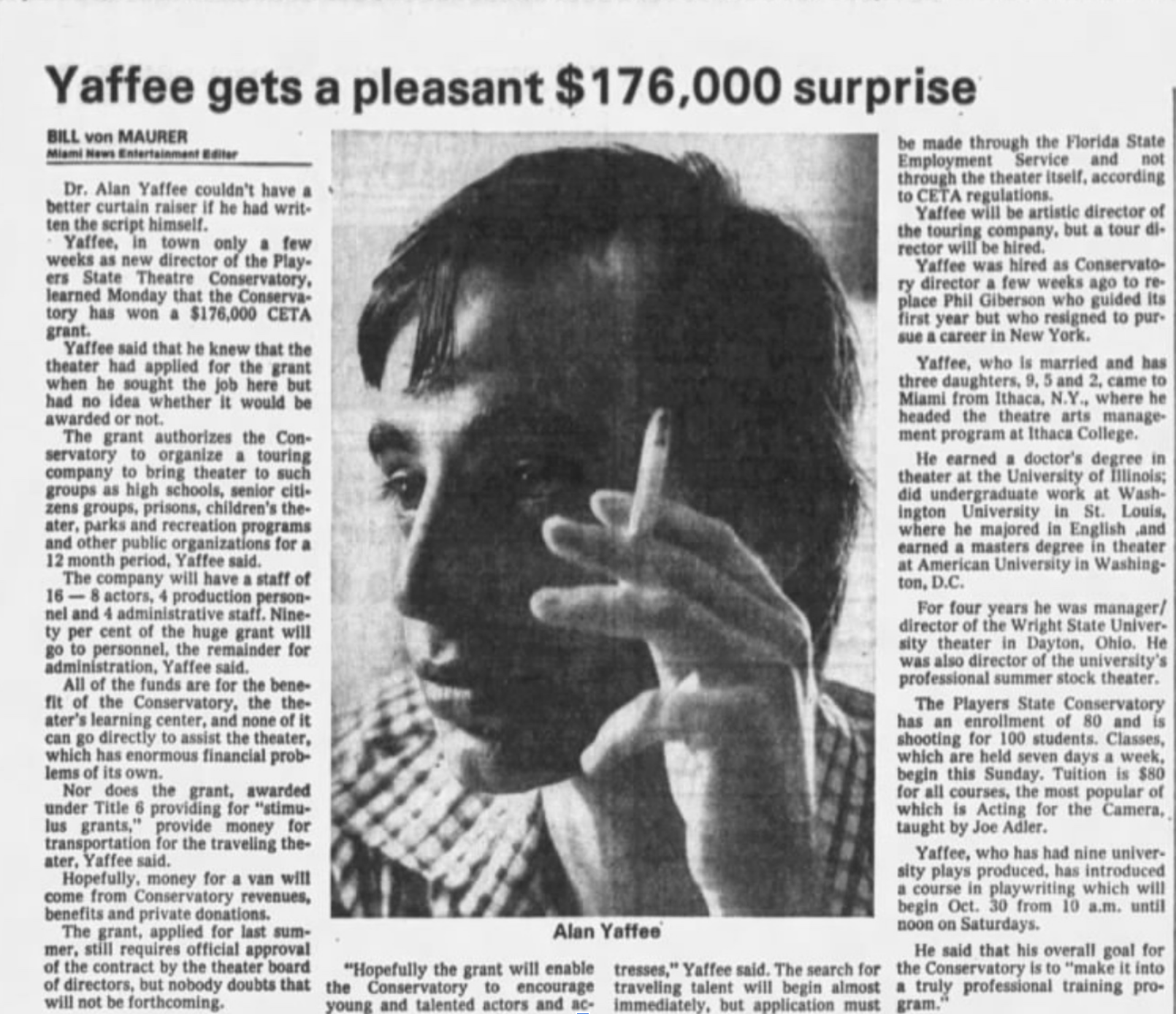1977-1984: Educational Programming at the Newly Not-for-Profit Playhouse
He established the Players State Theater Conservatory, which offered throughout the year classes for children, young adults, and adults. Ten-week sessions ranged from $80-$125, which in 2024 dollars would be $385-$600. He hired Alan Yaffee to direct the Conservatory. Aiming for 100 students in the Conservatory, already eighty students were enrolled in the fall of 1978, shortly after Yaffee was hired.. Classes advertised during this period included:
- acting workshops
- voice and diction
- comedy acting
- production management
- playwriting
- scene study
- makeup
- masks
- stage combat
- stage fencing
- vocal production for the stage
Additionally, for accomplished actors only, the Conservatory offered a class in audition techniques.

An article describing the Players State Conservatory, excerpted from The Miami News, September 20, 1978.
In addition to classes, in 1978 the Conservatory initiated a touring company, funded for a year with a federal grant. The company’s mission was to bring theater to schools, senior citizen groups, parks, prisons, and other public organizations. The company had 16 staff members: eight actors, four production staff, and four administrative staff. The actors were Actors Equity members with experience either in New York or at Sarasota’s Asolo Theatre, Florida’s first State Theater. In the 1978-79 season the company scheduled four different productions and that summer anticipated presenting in 35 Miami Parks.
In the 1981-1982 season no classes were offered because of state-funded renovations taking place at the theater, and it seems that through the Ferrer years (1982-1985), the entire education program foundered.
The Board, however, saw the Education program as a pillar of the Playhouse’s mission. They emphasized the importance of this when seeking a new director after Ferrer resigned in 1985.
